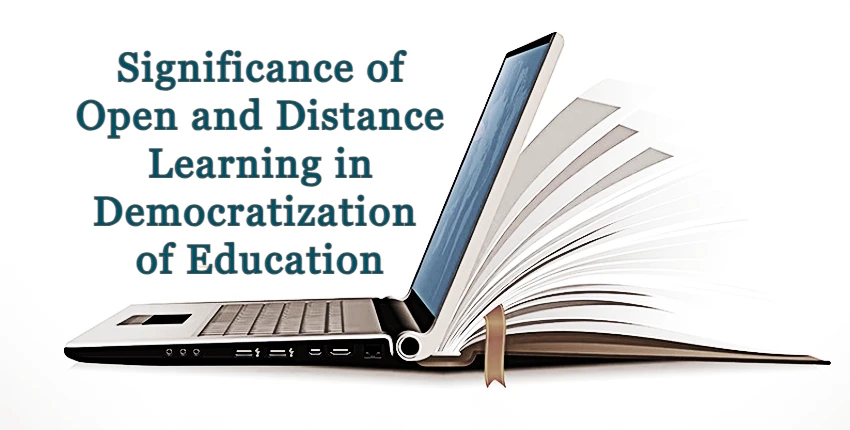The Influence of Religion on Morality in a Secular World
In secular societies, where government and legal systems operate independently of religious institutions, the question of where moral values originate and how they are sustained remains central to public and philosophical discourse.
Religion, despite its separation from state affairs, continues to influence moral and ethical values, often shaping the core principles by which individuals and communities live.
The impact of religion on moral values persists through cultural norms, social institutions, and the personal beliefs of citizens, regardless of whether they personally subscribe to a particular faith.
In this article, we will examine how religion shapes moral values in secular societies, exploring both its enduring influence and the complexities it introduces in diverse and pluralistic contexts.

Religion as a Historical Foundation of Moral Values
Religions have historically been among the primary sources of moral codes, offering structured systems of right and wrong that guide individual and social behavior.
Most of the world’s major religions—Christianity, Islam, Hinduism, Buddhism, Judaism, and others—provide moral teachings rooted in concepts like compassion, justice, integrity, and respect for life. Many of these values became ingrained in legal systems and societal norms long before the emergence of secular governance.
For example, the moral teachings of the Ten Commandments in Christianity, which include prohibitions against theft, murder, and dishonesty, laid the groundwork for many Western legal frameworks.
Similarly, the principle of Ahimsa, or non-violence, in Hinduism and Buddhism has influenced moral attitudes toward violence and compassion. In this way, religious morality has historically contributed to a universal set of ethical principles that transcends specific beliefs, influencing secular societies’ development of moral and legal norms.
As secular societies evolve, the historical influence of religion on moral values persists, often as a shared cultural inheritance rather than an explicit religious directive. For instance, values such as honesty, charity, and kindness, which have clear religious origins, continue to be upheld in secular societies as virtues essential for societal well-being.
Moral Values and Secularism: Points of Convergence and Divergence
Secularism advocates for the separation of religion from state affairs to ensure freedom of belief for all individuals, regardless of religious background. This approach fosters an inclusive environment where citizens can practice their beliefs privately without religious imposition in public life. However, even in secular societies, religious moral values frequently converge with secular ethical principles, shaping how people view issues such as justice, equality, and human rights.
For example, both religious and secular moral systems generally uphold the principles of fairness and empathy. Secular moral frameworks, such as human rights principles and laws against discrimination, often echo religious teachings that promote respect for human dignity.
Consequently, in many cases, the values derived from religious teachings and those stemming from secular philosophies complement rather than contradict each other.
However, there are instances where religious and secular values diverge. Topics like reproductive rights, euthanasia, and LGBTQ+ rights often bring religious and secular moral perspectives into conflict, as religious doctrines may advocate stances that differ from secular, individual-rights-based ethics.
In such cases, secular societies navigate complex terrain to balance respect for religious beliefs with the rights and freedoms upheld by secular governance, often enacting laws that prioritize individual autonomy over religious prescriptions.
Religion as a Cultural Force in Secular Societies
In many secular societies, religion continues to serve as a cultural force that shapes moral values, even for those who do not actively practice or identify with a particular faith.
Cultural celebrations, family traditions, and community rituals often have religious origins that carry moral undertones. These practices reinforce values such as gratitude, respect for elders, and the importance of community, which contribute to societal cohesion.
For instance, the celebration of religious holidays, such as Christmas, Ramadan, or Diwali, often includes acts of charity and kindness. These religious festivals have transcended their theological origins to become widely observed cultural events that reinforce moral values among religious and non-religious people alike. Through these cultural practices, religiously inspired moral values permeate society, subtly shaping how people interact with one another and contribute to their communities.
Religion’s role as a cultural force is especially visible in times of crisis, such as natural disasters or social unrest, when communities turn to religious institutions and values for guidance and support.
Religious leaders often serve as moral voices, calling for compassion, solidarity, and resilience in the face of adversity. In this way, religious values continue to influence social norms and attitudes, providing a framework of compassion and community support that transcends individual beliefs.
The Role of Religious Institutions in Shaping Moral Discourse
Religious institutions in secular societies often engage in public discourse on moral and ethical issues, advocating for social justice, charity, and ethical governance. By voicing religious perspectives on issues such as poverty, healthcare, and education, religious institutions shape public morality and encourage civic responsibility.
For example, the Catholic Church, through encyclicals and social teachings, promotes values such as solidarity, human dignity, and care for the vulnerable, which resonate with secular calls for social justice and equality.
These institutions frequently partner with secular organizations to address social issues, contributing to moral discourse without imposing religious beliefs.
Faith-based organizations often play an instrumental role in humanitarian efforts, working alongside secular groups to address issues like homelessness, addiction, and access to education.
In doing so, they model moral values that resonate with both religious and non-religious citizens, fostering a sense of shared responsibility toward societal welfare.
However, the involvement of religious institutions in public discourse can also be controversial, particularly when their moral teachings conflict with secular policies.
Issues such as reproductive health, gender rights, and same-sex marriage often spark debate, as religious institutions advocate for policies that align with their doctrines. In these cases, secular societies must negotiate a balance between respecting religious perspectives and upholding secular principles of individual rights and freedom of choice.
Personal Morality: Religion as a Private Guide in Secular Life
For many individuals in secular societies, religion serves as a personal source of moral guidance, shaping their values and behavior in everyday life. Even in a secular context, personal belief systems often draw on religious teachings, helping individuals navigate moral dilemmas and make decisions that align with their values.
For instance, a person might draw on religious principles of honesty, kindness, or forgiveness to guide their interactions with others, regardless of whether these values are mandated by law.
Religious values can provide a sense of purpose and direction, encouraging people to live according to principles that promote both personal and societal well-being.
For some, the ethical teachings of their faith offer stability and coherence in a world where secular values may be seen as more fluid and subject to change. This personal adherence to religious morality contributes to the moral fabric of secular societies, as individuals embody and enact values that resonate with broader ethical standards.
Furthermore, for individuals struggling with questions of meaning or facing moral challenges, religion often provides a framework for reflection and self-improvement.
Concepts such as repentance, compassion, and humility—common to many religious teachings—encourage individuals to consider the impact of their actions on others and to strive for moral growth. In this way, religious values contribute to individual moral development, which, in turn, shapes the ethical landscape of secular societies.
Secular Ethical Frameworks and the Role of Religion in Moral Education
Secular societies often promote ethical education through secular frameworks, such as philosophy, human rights, and civic education. These frameworks encourage moral reasoning, empathy, and respect for diversity, aligning with universal values that transcend religious doctrine.
However, religious education continues to play a role in shaping moral values, particularly in contexts where religious studies are included in school curricula or where families encourage religious practices at home.
Religious education can provide a foundation in moral philosophy, exposing students to ethical questions and encouraging critical reflection on moral values. By learning about religious traditions, students gain insight into the origins and development of moral codes, fostering a sense of moral and cultural awareness.
Furthermore, religious teachings often emphasize values such as humility, forgiveness, and altruism, which enrich students’ understanding of ethical behavior.
The coexistence of secular and religious education allows for a comprehensive moral education, where students can explore diverse perspectives on morality and ethics.
While secular ethics may emphasize individual rights and rational decision-making, religious moral teachings offer insights into values like compassion, sacrifice, and communal responsibility, encouraging a holistic approach to ethical development in secular societies.
Challenges and Opportunities in Balancing Religious and Secular Moral Values
One of the challenges in secular societies is balancing the moral contributions of religion with the need for inclusivity and respect for diverse beliefs.
While religious values can enhance moral discourse, they can also lead to tension when they conflict with secular ideals.
For instance, religious objections to practices like same-sex marriage or abortion often lead to polarizing debates that challenge the boundaries of religious freedom and individual rights.
However, secular societies also provide opportunities for dialogue and mutual respect between religious and non-religious communities.
Interfaith and secular dialogues foster understanding and respect for differing moral perspectives, encouraging cooperation on issues of common concern, such as environmental protection, poverty alleviation, and social justice.
By promoting open communication and shared values, secular societies can benefit from the moral insights offered by religion while respecting individual autonomy and diversity.
In this regard, secularism does not necessarily imply the exclusion of religion from moral discourse. Rather, it provides a framework for balancing religious and secular values, allowing citizens to contribute to moral discourse based on their unique perspectives while upholding principles of equality and freedom.
This inclusive approach encourages a pluralistic society where diverse moral values coexist and contribute to a richer, more complex understanding of ethics.
Conclusion
Religion plays a multifaceted role in shaping moral values in secular societies, influencing cultural norms, individual behavior, and public discourse.
While secular societies prioritize individual freedom and autonomy, the moral values rooted in religious teachings continue to resonate, providing ethical foundations that transcend specific beliefs.
Through cultural practices, religious institutions, and personal belief systems, religion contributes to the moral fabric of society, promoting values that align with both religious and secular ethics.
The relationship between religion and morality in secular societies is complex, marked by both convergence and divergence on key issues. However, this diversity of perspectives enriches moral discourse, fostering a society where individuals can draw on both religious and secular sources of ethical guidance.
In navigating this dynamic, secular societies can encourage a balanced approach that respects religious contributions to morality while upholding principles of inclusivity, autonomy, and mutual respect.
In doing so, they create an environment where diverse moral voices contribute to the ongoing development of shared ethical values that benefit society as a whole.



